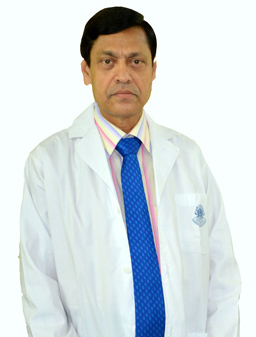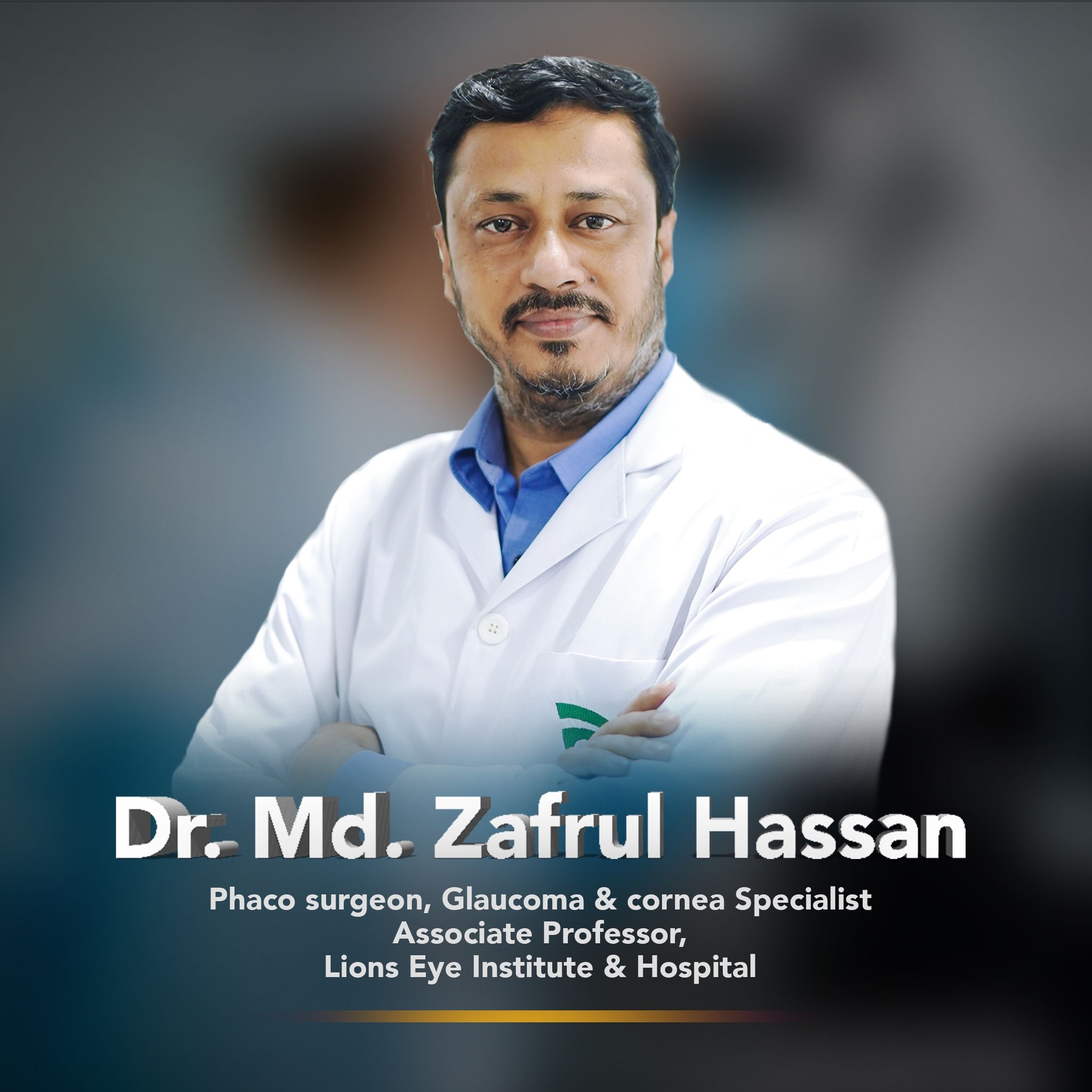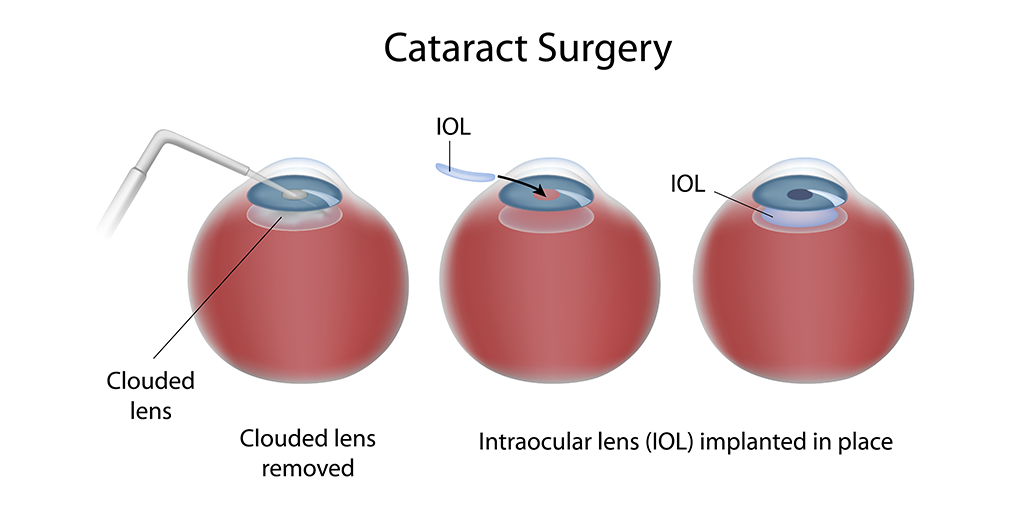Department of Cataract & Refractive Surgery

Prof. Dr. Shahinur Rahman
Specialty - Phaco, Neuro, Medical Retina & Laser Surgeon.
Degree - MBBS, FCPS , Trained from National University Hospital, Singapore
Experience - 15 years

Prof. Dr. Md. Shahidul Haque
Specialty - Chief Consultant & Professor Cataract & Cornea department
Degree - MBBS (DMC), DOMS, MPH
Experience - 25 years

Prof. Dr. Liakat Ali Talukder
Specialty - Phaco Surgeon
Degree - MBBS, DO, MPH
Experience - 15 years

Prof.Dr. Mohammad Zafrul Hassan
Specialty - Glaucoma & Cornea
Degree - MBBS, FCPS Long term fellowship in Cornea, December, 2013. Long term fellowship in Glaucoma - February 2016
Experience - 12 years

Prof. Dr. Sohana Sharmin Gazi
Specialty - Professor & Course Co- ordinatior Paediatric & Strabismus department, Fellow Pediatric Ophthalmology & Squint
Degree - MBBS, DO. MCPS, FCPS Long term fellowship in Pediatric Ophthalmology & Strabismus – July, 2015
Experience - 5 years

Dr. S. M. Rejwan Raju
Specialty - Glaucoma
Degree - MBBS (DMC), MCPS (Eye), FCPS (Eye) Fellow-Glaucoma (NIOH & AEH, India)
Experience - 12 Years

Dr.Kabir Hossain
Specialty - SICS, VR, Surgeries, Retinal Lasers, Anterior Segment surgeries.
Degree - MBBS, MS (Ophthalmology) Long Term Fellow (VR)
Experience - 2 Years


Cataract surgery is all about removing the faulty lens in your eye, and in majority of the scenarios, replacing it with an artificial lens and also called lens replacement surgery. Cataract surgery is considered to be one of the most successful clinical managements in the healthcare sector with direct improvements in visual acuity as well as reduced mortality according to a report in 2020 by National Institute of Health.
We provide kinds of Cataract Treatments that’s are show on the below:
- Extracapsular Cataract Surgery
- Intracapsular cataract surgery
- Phacoemulsification
- Traditional cataract surgery
- Laser-assisted cataract surgery
- Laser-assisted cataract surgery

The clinic handles Primary Glaucomas, which are largely inherited, in addition to Secondary Glaucomas caused by trauma, inflammation, Diabetes, Retinal Vascular Disease and hypermature cataracts. Deviations from normal retinal nerve fibre thickness are the earliest structural changes in persons with glaucoma.
Treatment
- Medication (eye drops)
- Laser Procedures
- Surgical procedures
Routinely performed procedures
- Trabeculectomy
- Trabeculectomy + Trabeculotomy.
- Trabeculectomy with anti mitotic agents like Mitomycin-c or 5-FU
- Trabeculectomy with ologen implants,
- Valve /Tube implants
- Combined Trabeculectomy with IOL implantation.
- Bleb needling , bleb repair/ revision
- Non penetrating glaucoma filtering surgeries : deep sclerectomy (including laser assisted),
How Do You Know When to Get Cataract Surgery?
If you are diagnosed with cataracts, this does not mean that you will be scheduled for surgery immediately. In many cases, your doctor may recommend waiting unless the cataract has caused severe vision loss, which could put you in danger. Your eye doctor may also set you up for surgery if cataracts may prevent them from treating a different eye condition, like diabetic retinopathy or macular degeneration.
Reasons you may need cataract surgery include:
- Your job requires a lot of driving.
- You have trouble reading or seeing a television, even with corrective wear.
- Vision problems affect your level of independence, including safely walking, preparing food, and performing other routine, daily tasks.
Often, your doctor will ask you to wait and to come for regular visits to follow the progress of your cataract. You may still have clear enough vision for a long time after being diagnosed with a cataract, but it is important to keep up with visits to your eye doctor, so you can know how the cataract is progressing.
A diagnosis of cataract means that your normally clear lens, located behind your eye's colorful iris, has grown cloudy. The lens contains mostly water and proteins that are specially organized to focus light on the retina for clear vision. In many people, the proteins begin to clump and obscure vision.
While recent scientific advances are closing in on what causes the proteins to rearrange and the lens to cloud up, we do know key risk factors for cataract formation. Growing older is one. So are long-term exposure to sunlight and smoking cigarettes. Other risk factors are listed on the downloadable fact sheet.
According to the World Health Organization, cataracts are the leading cause of blindness in the world. In the U.S., more than half of all people 65 and older have a cataract.
The majority of cataracts are age-related. A cataract begins as a small opacity within the lens and grows until it interferes with vision. Many people have cataracts and don't even notice until the defect grows large. Vision might appear a little hazy at first and lights might give off a halo or glare. Colors can appear faded. Blue might look green and yellow might appear white. Ultimately, everyday tasks become challenging.
It is at this point that many people have cataract-removal surgery. The surgeon removes the clouded lens and typically replaces it with an artificial lens. Thanks to many years of vision research, cataract surgery is safe and effective, and in the U.S., widely accessible.
Hands on Training in Manual Small Incision Cataract Surgery (SICS) short term course
Lions Eye Institute has a bunch of well-trained ophthalmologists in IOL microsurgery. To create more ophthalmologist efficient in IOL microsurgery, Lions Eye Institute & Hospital has introduced training program in SICS for practicing ophthalmologists. So that these ophthalmologists can provide quality cataract surgery to the patients of their community in different part of this country and abroad.
Q. What is Cataract ?
Ans: Cataract means the problem of eye disability


